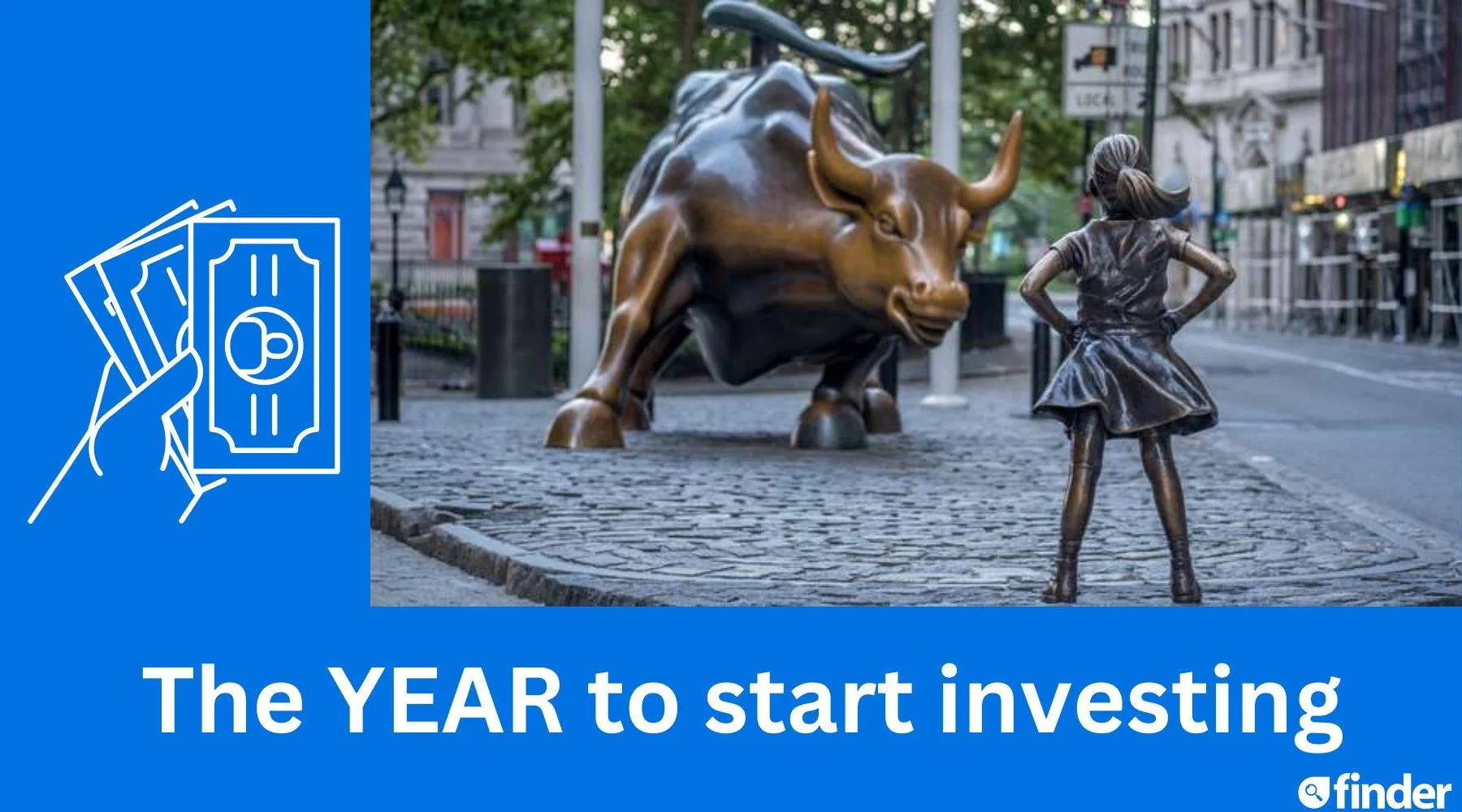Why 2023 should be the year you start investing

Even with all the doom and gloom in the investment world, markets do go up over time.
Australia's most popular investment index, the S&P/ASX 200 share index, lost more than 5% in 2022. While that is not a happy result for investors, the local market performed far better than many other markets globally.
By comparison, the S&P 500 slumped more than 20% over the year, the tech-heavy Nasdaq tumbled 33% while the pan-European Stoxx 600 index closed down nearly 13%.
Despite the unprecedented turbulence over the past year, experts believe investors should not shy away from the markets in 2023. Here is a look at their key reasons:
Volatile markets will eventually steady
The shocks that hit financial markets over the past year came about through a confluence of events: supply chain issues from the pandemic, geopolitical conflict in Europe and aggressive central bank tightening to control the surge in inflation.
The last one in particular has resulted in volatile equity markets and an epic surge in bond yields that saw rates double on 10-year US Treasuries and more than triple on UK government bonds.
While analysts say many of these same issues will continue to have an impact in 2023, things are bound to be less dramatic this year.
Top strategists, including those from Lazard and Morgan Stanley, believe inflation pressures have already peaked across most developed economies, meaning central banks will likely slow the pace of their rate hikes sometime in 2023.
While the rate increases still run the risk of recession in some countries, economic growth could revive in the latter months of the year. This will bode well for corporate earnings.
Investing will help you stay ahead of inflation
Australia's annual inflation rate peaked at a 30-year high of 7.3% at the end of 2022. Economists broadly expect inflation to stay high over the next year despite the Reserve Bank of Australia's (RBA) rapid rate increases, mainly because commodities prices are still running strong.
That would translate into an erosion in the value of your savings if you hold on to it in the form of cash. According to MoneySmart, the average return on cash in Australia has been 3% over the last decade.
By contrast, the average return on ASX shares has been 6.5%. In fact, investing over a long period has been proven to be one of the best ways to beat inflation. Stocks, bonds, gold, property and even energy commodities are among the favourite investment options to prevent loss of value.
Look to 2032, not 2023: Long-term investing
Long-term investing involves putting your money to work and leaving it to grow for years or decades. Rather than focusing on short-term vagaries of the market or things such as interest rates, long-term investors focus on the performance of the business itself.
For instance, while the S&P 500 lost 20% of its value in 2022's downturn, it still shows an average of 11.82% per year between 1928 and 2021. Long-term investments almost always outperform the market compared to investors trying to time their holdings.
One of the main benefits of a long-term investment approach is the power of compounding money. The earlier you start saving and investing, the quicker you'll be able to start generating compounded returns. Longer-term investments also yield better returns as businesses expand and generate profits.
An investment time frame of 5–10 years is also more cost-effective than regular buying and selling of securities and paying taxes on regular transactions.
Investing can help you pay for long-term goals
Longer-term goals are generally focused on big commitments such as saving to buy a house or planning for retirement. These objectives require an approach that goes beyond buying and selling assets in the markets.
Generally, investors looking at a shorter time frame avoid certain higher return asset classes such as growth stocks because they are put off by the risk involved. A longer-term approach allows you to weather the ups and downs of the market.
Investing for a longer time frame also encourages individuals to diversify into a number of asset classes to minimise risk, which is considered a more effective and sustainable method than concentrating on a single type of investment.
According to a recent Morningstar survey, despite the decline in 2022, the vast majority of retail investors expect average annual returns of 5–10% from Australian equities over the next 10 years.
Looking for a low-cost online broker to invest in the stock market? Compare share trading platforms to start investing in stocks and ETFs.

Ask a question
